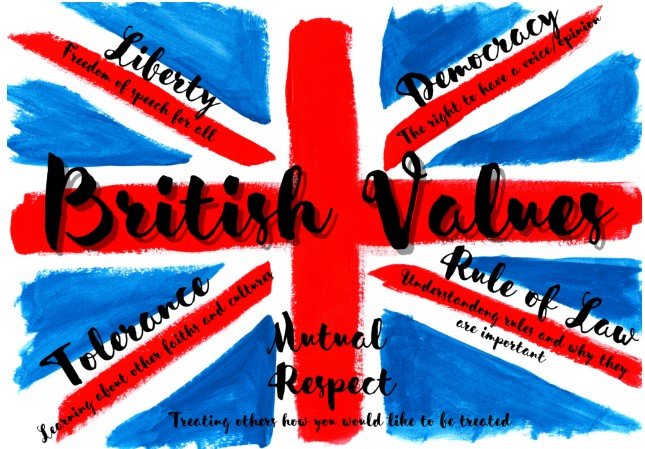
We promote fundamental British values and mutual respect and tolerance of those with different faiths and beliefs. We reflect the religious backgrounds represented in our community in our CHARACTER ASSEMBLIES and actively promote British values, encouraging our pupils to regard people of all faiths, races and cultures with respect and tolerance.
The DfE have recently reinforced the need “to create and enforce a clear and rigorous expectation on all schools to promote the fundamental British values of democracy, the rule of law, individual liberty and mutual respect and tolerance of those with different faiths and beliefs.”
The Government set out its definition of British values in the 2011 Prevent Strategy. At Fazakerley Primary these values are reinforced regularly and in the following ways:
Democracy
Democracy is embedded throughout our school curriculum. Pupils are always listened to by adults and are taught to listen carefully and with concern to each other, respecting the right of every individual to have their opinions and voices heard. Pupils also have the opportunity to air their opinions and ideas through our Pupil Leadership Team and regular pupil questionnaires.
The Rule of Law
The importance of laws (whether they are those that govern the class, the school or the country) is consistently reinforced. Our school has our ‘TEAM Code of Conduct’, which is deeply embedded in our work every day. This sets out our school rules that are clearly understood by all and seen to be necessary to ensure that every class member is able to learn in a safe and ordered environment. Our pupils are taught the values and reasons behind laws, that they govern and protect us, the responsibilities that this involves and the consequences when laws are broken. This is also clearly embedded within our Positive Behaviour policy.
Individual Liberty
Within school, pupils are actively encouraged to make choices, knowing that they are in a safe, caring and supportive environment. As a school, we educate and provide boundaries for our pupils to make choices safely, through the provision of a safe environment and an empowering education. Our pupils are encouraged to know, understand and exercise their rights and personal freedoms and are advised how to exercise these safely; examples of this can be clearly seen in our online safety and PSHE lessons. Whether it is through choice of challenge; of how they record; of participation in our numerous extra- curricular activities; our pupils are given the freedom to make choices and are encouraged to act responsibly and show initiative.
Mutual Respect
As a school that holds values at the core of its ethos, our school values and behaviour policies have evolved around Core Values such as ‘Respect’. The pupils have been part of discussions and assemblies related to what this means and how it is shown. Respect is one of the values that is taught explicitly within lessons as well as character assemblies, enabling pupils to contribute positively to the lives of those living and working in the locality of our school. It is shared with home through newsletters and website information. Adults throughout the school will model, demonstrate and promote respect for others as do older children who have suitable, age- related tasks and responsibilities, and this is re-iterated throughout classroom, as well as seen in our behaviour.
Tolerance of Those with Different Faiths and Beliefs
Respect ensures tolerance of those who have different faiths and beliefs. Fazakerley Primary School enhances pupils’ understanding of different faiths and beliefs through religious education studies; PSHE work; visits to places of worship from other faiths and religions; welcoming visitors into school in order to celebrate differences and enjoying a depth of study during themed weeks. Beliefs, traditions and customs from around the world are studied, with visitors being invited into our school to enrich and extend understanding. Through these activities, our pupils gain an enhanced understanding of their place in a culturally diverse society and an understanding of the importance of identifying and combatting discrimination.
Visitors to school.
On Monday 18th November 2024, we welcomed a special visitor into school to speak to our children about the Monarchy.
Our Trip to London.
We build cultural capital by enriching pupils’ lives through memorable and unforgettable experiences, trips and visits to special places of interest.
We do this throughout our curriculum by using the vibrancy of our great city and all it has to offer.
We then visit our capital city in Year 6 to compare and contrast with Liverpool.
On our London trip in January, we visited Cathedrals, galleries as well as Buckingham Palace, Downing Street and Parliament. These sights enabled us to discuss our monarchy present and past as well as our democratic system. The children described this visit as 'the best day of their lives'








